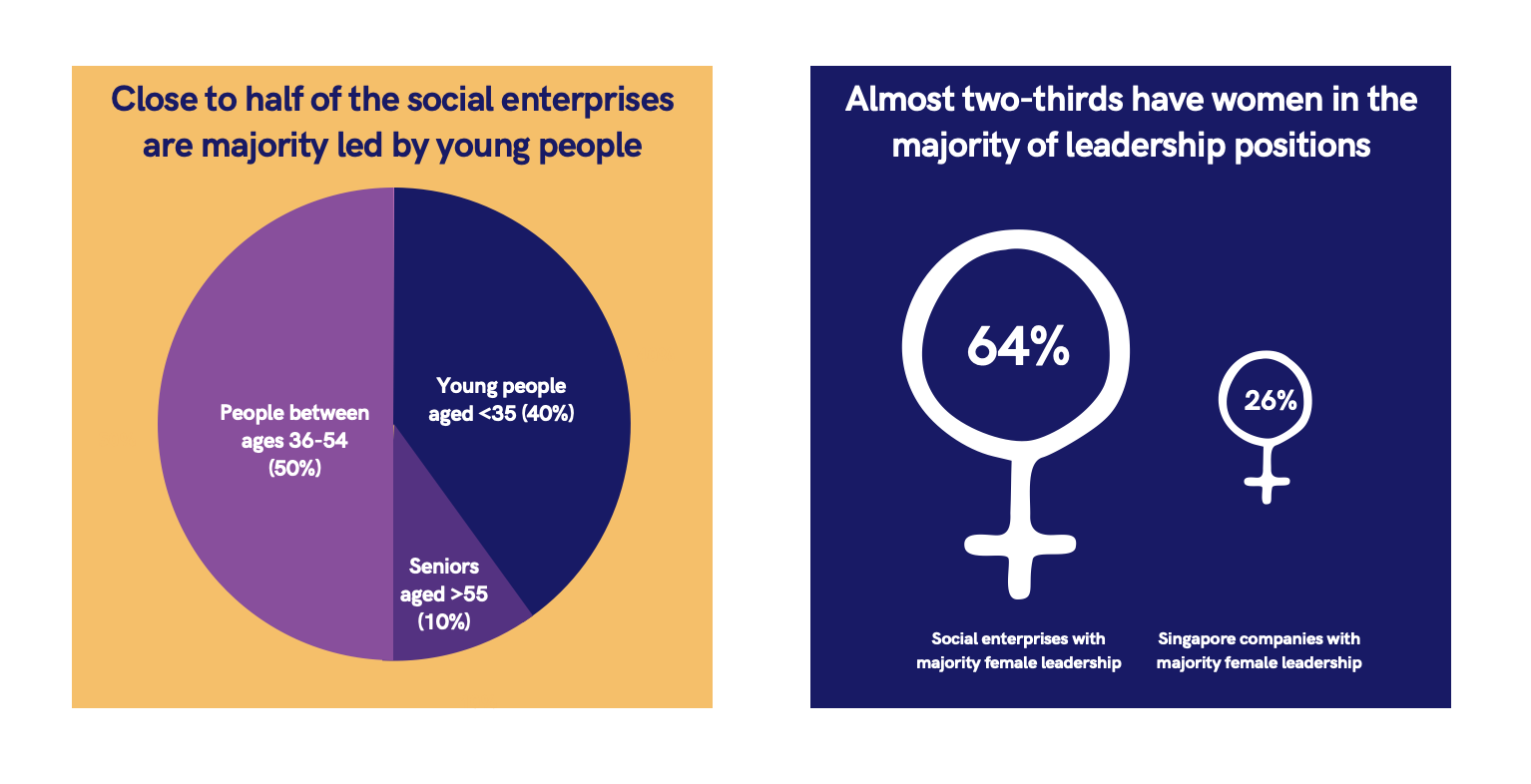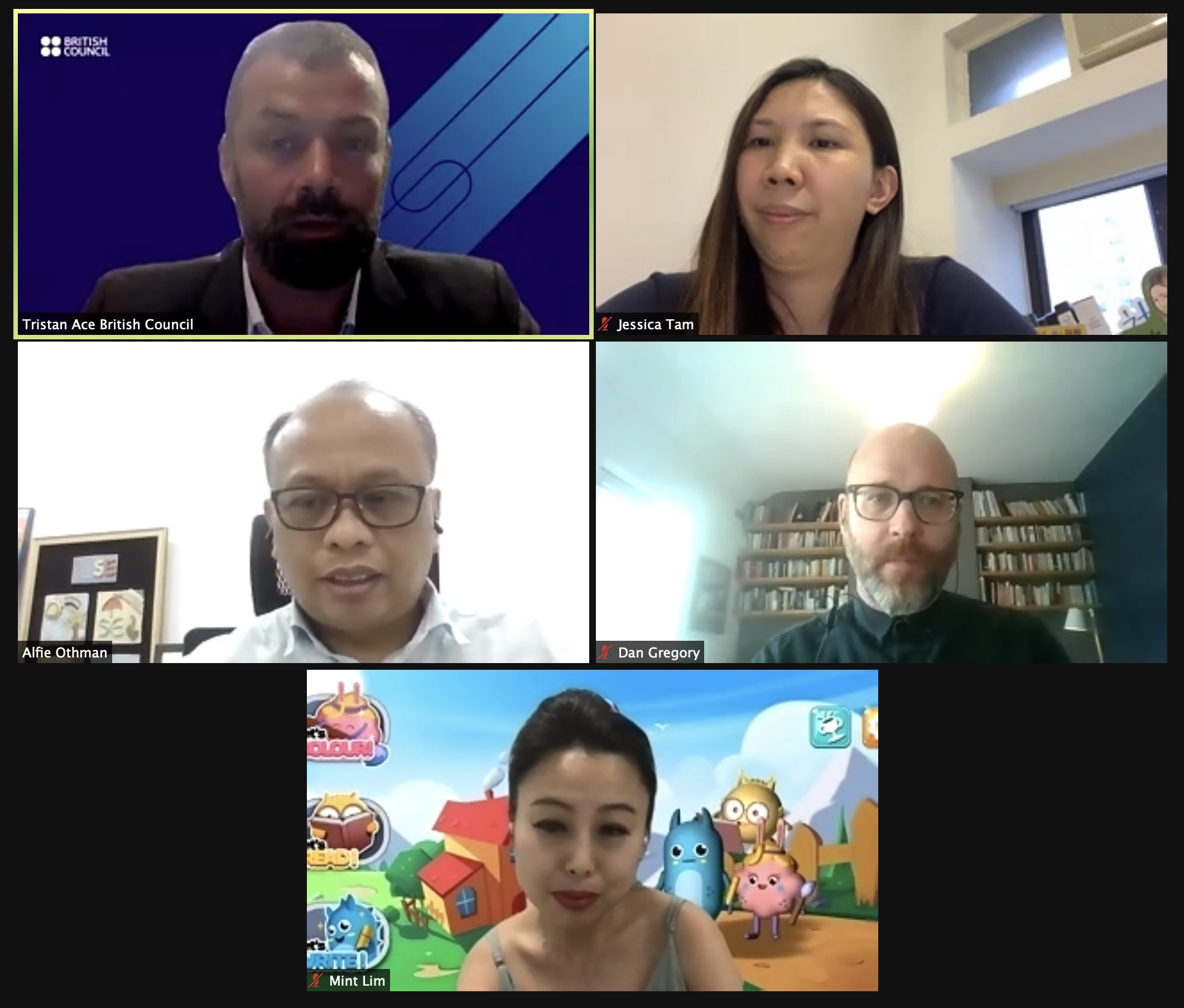Singapore’s social entrepreneurs are young - and mostly female
The latest research into social enterprises in Singapore reveals over-55s are outnumbered by younger leaders, and almost two-thirds are headed by women.
Women and younger people are taking the driving seat in Singapore’s social enterprise sector, according to the latest research published this month.
The State of Social Enterprise in Singapore is the most recent of the British Council’s global social enterprise surveys. It was launched at a webinar held on 25 February 2021.
- Catch up with the latest research into social enterprise around the world
The research was commissioned by the British Council and raiSE – the Singapore Centre for Social Enterprise, in association with membership body Social Enterprise UK and a consultancy firm, the Soristic Impact Collective. It builds upon an inaugural study published by raiSE in 2017.
The latest research, drawn from a survey of 146 social enterprises during 2020, found that almost two-thirds (64%) of social enterprises have majority female leadership teams. This strength of female leadership is higher than that in neighbouring countries – for example, in Malaysia, 54% of social enterprises have majority female leadership, in Indonesia it’s 40% and in the Philippines it’s 44%.
It also outstrips women’s leadership in Singapore’s wider economy where just a quarter of business owners are women.
The research identified that 40% of social enterprises are led by teams comprising a majority of under 35-year-olds. Just 10% had leadership teams made up of a majority of over-55s.

Speaking at the launch webinar, Casper Ng, head of sector engagement and capacity building at raiSE, pointed out that the proportion of women leaders had risen since the first research was carried out in 2017.
He added: “The research suggests that younger more female-oriented leadership is taking place in the social enterprise sector. This is very heartwarming for us.”
The State of Social Enterprise in Singapore: key findings
Data drawn from the 146 social enterprises surveyed during 2020. |
Mint Lim, a young female social entrepreneur who founded the School of Concepts which provides early childhood education, said that she and her team were motivated by the idea of running a sustainable business at the same time as doing good.
“It was about starting a business that was about more than profit,” she said. “One that served all children – not just the privileged – to give a quality education to every child.
“We get a strong sense of satisfaction in terms of the people that we help and the lives that we touch as well as the business performance.”

Mint Lim (above during the launch webinar): "It was about starting a business that was about more than profit"
Singapore’s strong trading performance
The speakers at the launch webinar highlighted the strength of the trading activities of social enterprises in Singapore. According to the research, more than half (57%) reported either making a profit or breaking even, and their top sources of revenue are trading with the public and with corporates.
“It’s not easy to start any business and to start a social enterprise is tougher,” said Alfie Othman, CEO of raiSE. “Maybe consumers are changing and they are more willing to support a social enterprise. There are no donations needed to keep the organisations going because the market covers that. We see social enterprises as a market-driven solution to social issues on the ground.”
Maybe consumers are changing and they are more willing to support a social enterprise
Dan Gregory, director of international and sustainable development at Social Enterprise UK, who has overseen many of the British Council’s state of the sector reports around the world, pointed out that the trading activities with the general public were “relatively high” compared with other countries, particularly in the fashion and retail sectors.
He added that he was encouraged to see that the most commonly reported challenge was customer acquisition and market development, while in other countries social entrepreneurs often focus most on the difficulties of obtaining funding.
“For every social enterprise, getting customers has to be on that list. I was really pleased to see that kind of developed narrative,” he said. “They are socially driven, but they are businesses and they need customers.”
Header photo: Social enterprise Center Pottery offers "mindful pottery" to help participants improve their mental health and emotional well-being.

